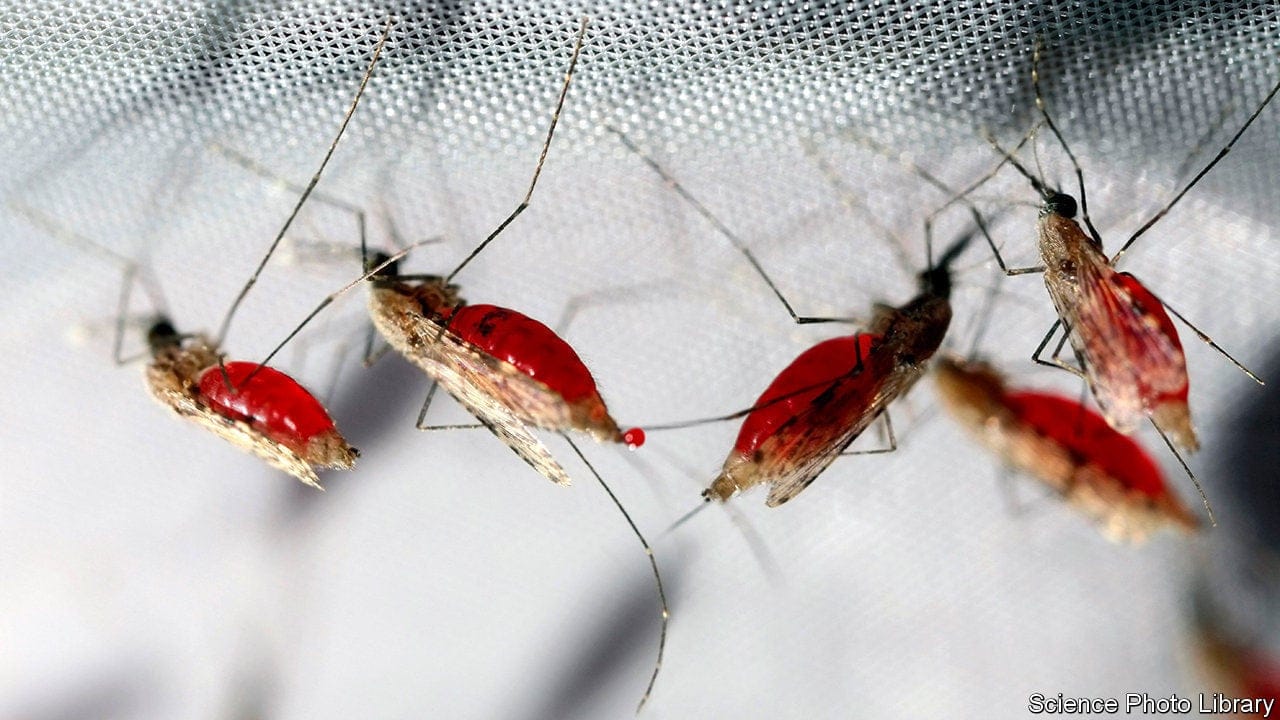- by
- 07 24, 2024
-

-
-
Loading

Loading

RESEARCHERS HAVE tried to develop an effective malaria vaccine for decades. But this has proved tricky. One of the main challenges is the very nature of the disease. Plasmodium species, the parasites that cause malaria, are extremely good at evading the body’s immune-system response. The World Health Organisation (WHO) estimates that more than 400,000 people a year die after becoming infected with them. Most are children in Africa. But results from a clinical trial of a new vaccine suggest that, if it can be got to those who need it, this could change. On April 23rd a group led by Halidou Tinto, a professor of parasitology who is the regional director of the Research Institute of Health Sciences in Nanoro, Burkina Faso, announced that their candidate vaccine, developed at Oxford University and called R21/Matrix-M (MM), was 77% effective in preventing malaria over the course of a year. This result is both impressive and unprecedented. It is the first time such a vaccine has met the 75% efficacy threshold set by the WHO.